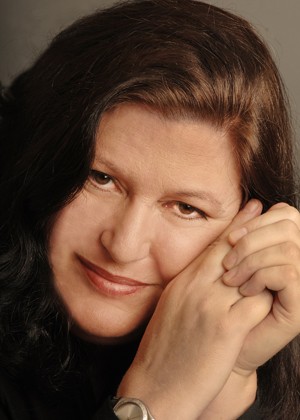
Can you tell us a little about Turn of Mind?
It’s a murder mystery, told by the main suspect, who happens to have Alzheimer’s. I was primarily interested in exploring what happens to an individual when she can’t trust her own mind any longer—what does that do to her daily life, to her relationships? How does she cope?
You’ve previously published short and non-fiction works, what spurred you into writing a novel?
I had actually tried writing a novel before, but after five years I declared it dead. It’s always been a goal of mine, to write novels rather than short fiction.
Where did the original inspiration for Turn Of Mind come from?
The story was inspired by my mother, who suffered from this terrible disease for many years. I’d tried writing about it from a number of different angles – both fiction and non-fiction – for a number of years, but without success. It wasn’t until the idea of writing a murder mystery as the framework – suggested by my partner – came up that I was able to figure out how to say what I wanted to say.
I’m a very intuitive writer. I don’t plan ahead, and I don’t outline. I just write and then see what I have. After that, of course, I do rigorous editing. But the structure of Turn of Mind pretty much came to me as is. I was fortunate.
Jennifer White is a brilliant creation, spiky and fiercely intelligent, and I found it refreshing to encounter a not immediately likeable character, how was she to write?
I loved Jennifer. She was so interesting, and so unpredictable. I think I deliberately made her difficult to warm up to, because I didn’t want to be sentimental, as stories about people suffering from illnesses can be. So at every opportunity, I made choices that took her character in the opposite direction.
The relationship between Jennifer and her murdered friend Amanda is complex to say the least, do we tend to overly romanticise the bond between female friends?
I think so. I think they are multifaceted, and not always what they seem on the surface. In the case of Jennifer and Amanda, I think they recognized in each other a worthy adversary—the kind of strength and even ruthlessness that they rarely found in others. I think their friendship was a very deep and satisfying, albeit complicated, one.
Do you think you approached the process differently, not being a huge fan of crime fiction?
Well, I didn’t have any preconceived notions of what I needed to do. I just tried to keep the tension sharp as I explored these characters and their relationships. I didn’t even know who had done it until 50 pages from the end! Every day I went to the keyboard wondering, “what will I find out today?” It was a very fun experience.
How has life changed for you since publication?
The recognition and awards have been wonderful, of course. A little unsettling, but nice. Other than that, not much has changed. I still get up every day and write. I’m still teaching. I have my family to take care of. So in most important aspects, my life hasn’t been altered significantly.
What can readers expect next from you?
My next book, Coming of Age at the End of Days, will be out in 2014 in the United States by Grove Atlantic. I don’t believe the English rights have been sold yet. It’s a coming of age story about a 16-year-old girl who becomes enamoured by a doomsday cult, and decides that she’s going to try to fulfil one particular prophecy to accelerate the End Days. It’s quite different from Turn of Mind!